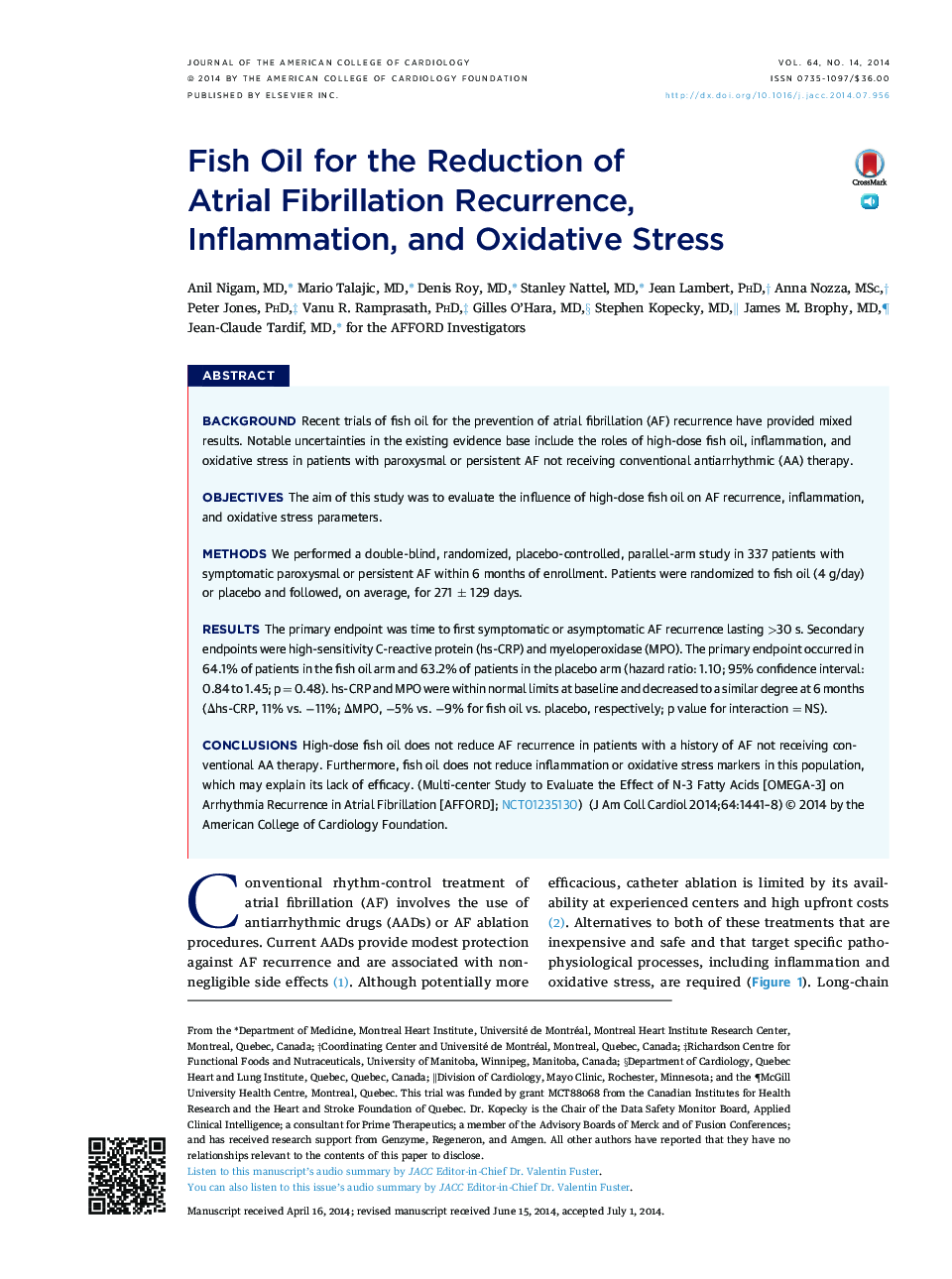| Article ID | Journal | Published Year | Pages | File Type |
|---|---|---|---|---|
| 5982836 | Journal of the American College of Cardiology | 2014 | 8 Pages |
BackgroundRecent trials of fish oil for the prevention of atrial fibrillation (AF) recurrence have provided mixed results. Notable uncertainties in the existing evidence base include the roles of high-dose fish oil, inflammation, and oxidative stress in patients with paroxysmal or persistent AF not receiving conventional antiarrhythmic (AA) therapy.ObjectivesThe aim of this study was to evaluate the influence of high-dose fish oil on AF recurrence, inflammation, and oxidative stress parameters.MethodsWe performed a double-blind, randomized, placebo-controlled, parallel-arm study in 337 patients with symptomatic paroxysmal or persistent AF within 6 months of enrollment. Patients were randomized to fish oil (4 g/day) or placebo and followed, on average, for 271 ± 129 days.ResultsThe primary endpoint was time to first symptomatic or asymptomatic AF recurrence lasting >30 s. Secondary endpoints were high-sensitivity C-reactive protein (hs-CRP) and myeloperoxidase (MPO). The primary endpoint occurred in 64.1% of patients in the fish oil arm and 63.2% of patients in the placebo arm (hazard ratio: 1.10; 95% confidence interval: 0.84 to 1.45; p = 0.48). hs-CRP and MPO were within normal limits at baseline and decreased to a similar degree at 6 months (Îhs-CRP, 11% vs. â11%; ÎMPO, â5% vs. â9% for fish oil vs. placebo, respectively; p value for interaction = NS).ConclusionsHigh-dose fish oil does not reduce AF recurrence in patients with a history of AF not receiving conventional AA therapy. Furthermore, fish oil does not reduce inflammation or oxidative stress markers in this population, which may explain its lack of efficacy. (Multi-center Study to Evaluate the Effect of N-3 Fatty Acids [OMEGA-3] on Arrhythmia Recurrence in Atrial Fibrillation [AFFORD]; NCT01235130).
